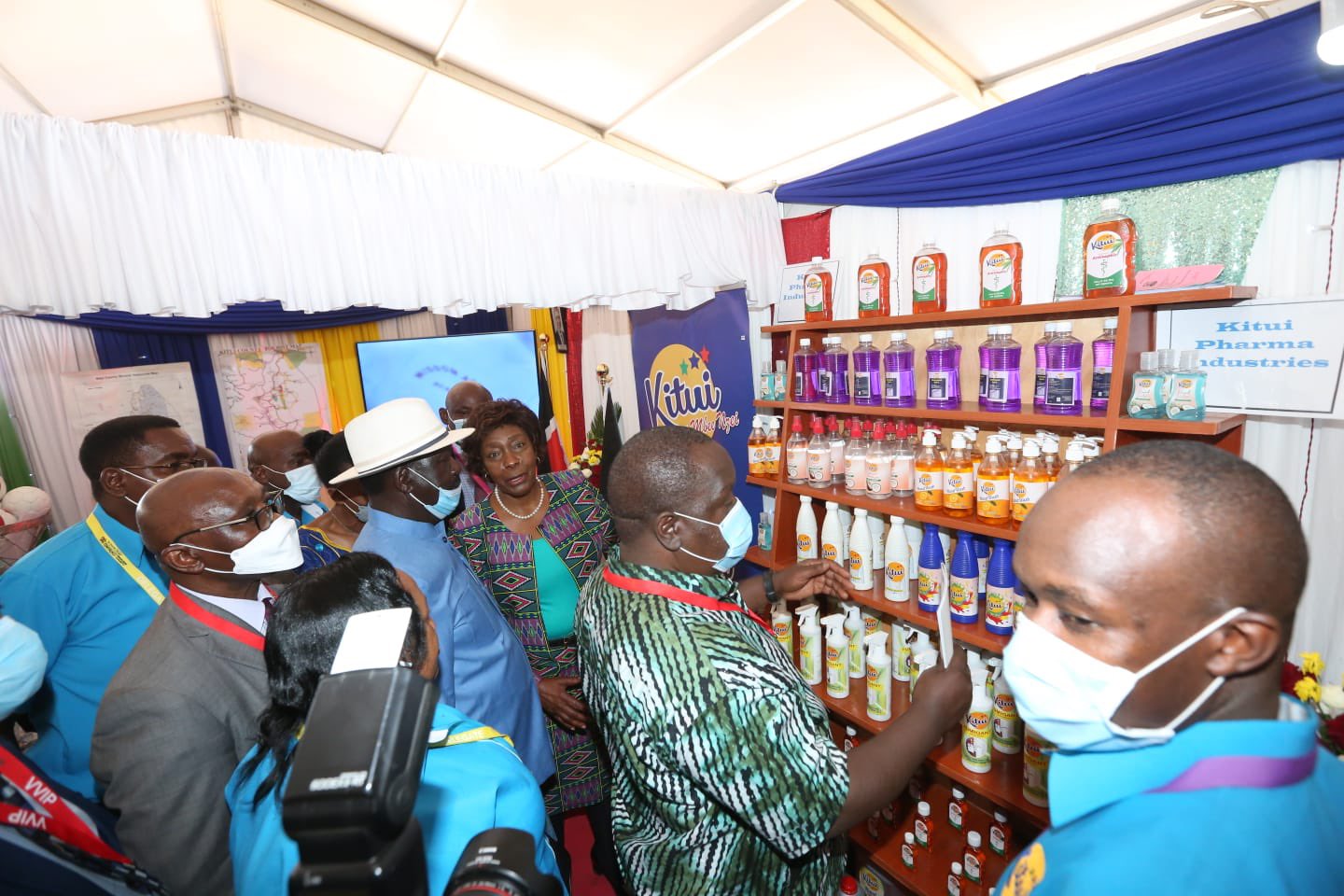Just days after she won plaudits for showcasing some of her county’s finest products at the 7th Annual Devolution Conference, political detractors of Kitui Governor Charity Ngilu have now claimed mischief in the move.
Ngilu has been put to task over the quality and authenticity of the items that won a lot of attention during the convention held in Makueni County.
They included leather products, pharmaceutical solutions, foods and local beverages which she all proudly declared to be locally manufactured.
But from social media posts seen by kenyanbuletin.com, the former cabinet minister is accused of pulling the devious plan in a desperate attempt to earn praise and approval from gullible Kenyans.
According to Machakos Town MP Dr Victor Munyaka, the products Ngilu displayed at the conference are not locally available in any shops or supermarkets within Kitui County.
“Ngilu should stop lying to Kenyans about the products she is displaying at the devolution conference. These products are not available in shops or supermarkets even in Kitui. Where are the factories?” he wrote on Twitter.
Further casting doubts into Ngilu’s claims that the products are locally manufactured, outspoken Kitui activist Patrick Safari argued that there is no single factory in the county that produces the said items.
The former prison warder accused Ngilu of repackaging foreign products with the newly designed Kitui stickers.
“I come from KItui and the truth is this is just PR. What the governor has been doing is repackaging and designing the stickers. There is no single factory in Kitui that makes the stuff Ngilu has been displaying,” he posted.
Safari’s tweet quickly caught the attention of curious netizens who also questioned some of the product’s legitimacy.
For instance, one Kenyan note that some of Ngilu’s products lacked the Kenya Bureau Of Standards (KEBS) mark on the labels.
The KEBS mark is a mandatory product certification scheme for locally manufactured products.
To acquire the mark, manufactured goods are expected to meet quality requirements as specified in the various approved standards.
Apart from missing this important certification, facts on the nutritional value of some of Ngilu’s products also seemed to be very misleading.

In a country that is devoid of enough locally-made products, it seemed for a moment like Ngilu had managed to earn the often rare acclamation from Kenyans.
But from some of the inconsistent figures above have raised further suspicion regarding the authenticity of the colourfully showcased items.
Our efforts for her comment on the matter proved futile as Kenyan Bulletin’s calls to Ngilu’s office went unanswered.























